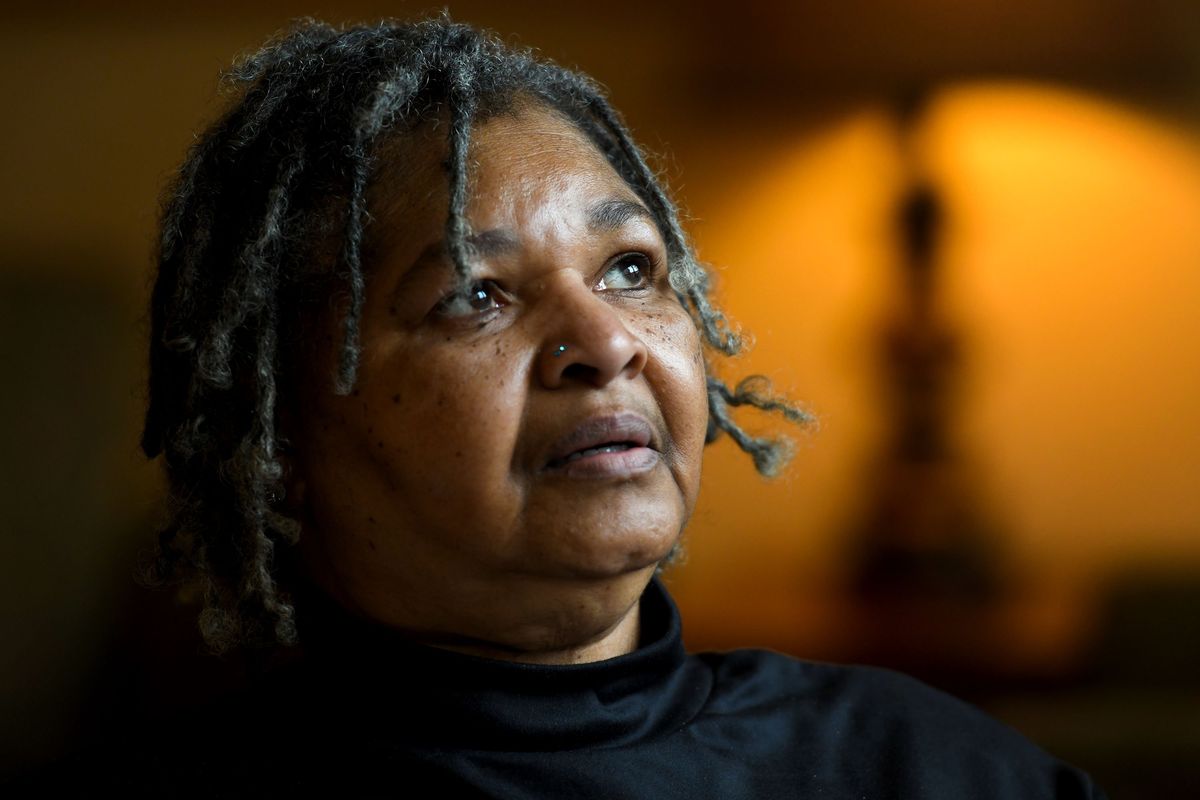After fearing pancreatic cancer as ‘death sentence,’ Spokane woman has a survivor story

When Claretha Caldwell got a diagnosis of pancreatic cancer in 2020, she thought it was a death sentence. That same year, her uncle died quickly from the disease, which has a low survival rate.
But today, Caldwell can call herself a pancreatic cancer survivor. Three factors were in her favor – early detection, aggressive cancer treatments and a complicated surgery that removed part of her pancreas, as well as her spleen.
Caldwell recently celebrated turning 60, with clear scans indicating her pancreatic cancer is gone. The physician who did her surgery in Spokane – Providence liver and pancreas surgeon Dr. Jen Pasko – was among the guests at Caldwell’s birthday party in September.
“When I was referred to Dr. Pasko and met with her, I was so scared because for many people with pancreatic cancer, they don’t survive from it,” Caldwell said.
“Dr. Pasko, she’s an angel. She kept telling me everything is going to be all right. She said, ‘Don’t worry; we caught it early.’ I sent her an invitation to my birthday party, and she came with her husband. When I saw her, I was so happy. It made my day.”
After diagnosis, Caldwell first went through chemotherapy. After that treatment, she said Pasko did the surgery in August 2021. The operation was followed by radiation.
Caldwell said she’s been in remission for about a year.
“Dr. Pasko left nothing unturned,” she said.
More than 62,000 Americans were expected to get a pancreatic cancer diagnosis in 2022. It’s estimated nearly 50,000 U.S. residents will die from the disease this year.
The general five-year survival rate after diagnosis for pancreatic cancer patients in the U.S. recently increased to 11%.
Pancreatic cancer is the third-leading cause of cancer-related deaths, after lung and colon. It’s on track to become the second-leading cause of cancer-related deaths before 2030, cancer researchers say.
Pasko said that while pancreatic cancer survival rates have slightly improved, one issue is that people typically have only vague symptoms such as weight loss and fatigue. The disease is often diagnosed when it’s in later stages and has spread.
Caldwell’s cancer was caught early by chance, when she had a CT scan in 2020 following a blood clot issue.
But Pasko said this type of cancer can be a survivable disease.
“I think pancreas cancer gets a bad rap because historically, it’s been a very aggressive disease,” Pasko said. “If you catch these cancers early, it can be a little bit more optimistic than the general public might think.”
In Caldwell’s case, the cancer was in the pancreas’ neck and body, she said.
Pasko also said that Black people are more at risk for developing the disease and dying from it, mostly because of socioeconomic issues and less access to care.
A few risk factors include obesity, smoking and alcoholism. Understanding and reducing risks are key in prevention, she said, because there aren’t any early detection tests.
Pasko said Caldwell underwent 12 cycles of chemotherapy before surgery, and then radiation treatment afterward.
“I would say this is a trend throughout the nation, because we know the aggressiveness of this cancer is giving patients chemotherapy upfront,” Pasko added. “Giving chemotherapy upfront allows us to take care of any micrometastatic disease, possibly shrink that tumor and test the biology of the disease.
“Claretha had a great response to chemotherapy; she was a rock star through it all. Chemotherapy isn’t easy, nor is the surgery.”
The pancreas sits tucked behind the stomach in the upper abdomen and produces enzymes that help with digestion and hormones to help regulate the way the body processes sugar, the Mayo Clinic says.
If the cancer is in the head of the pancreas, removal of that section can require some reconstruction for the gastrointestinal system to work, Pasko said. That wasn’t an issue for Caldwell.
“I took the neck, body and tail of the pancreas out and took out the spleen as well,” Pasko said. “You can live without the pancreas; you just have to replace the things that it does. She still has the head of the pancreas that is functioning and doing a good job.”
Caldwell said her health is generally good.
“I had a scare earlier this year; I have a fatty liver,” Caldwell said. A CT scan found spots on her liver. “Dr. Pasko called me and said, ‘Claretha, stop worrying, stop crying, it’s going to be all right.’ ”
She said Pasko ordered an MRI. After the results, the doctor called to tell her to celebrate.
“She said, ‘No, it’s not cancer; it’s just fatty pockets on the liver. Didn’t I tell you not to worry?’ That was another blessing.”
A Spokane resident since 2014, Caldwell has four daughters, five granddaughters, three grandsons and three great-grandsons. For her 1960s-themed birthday celebration, Caldwell wore a green-blue floral dress and go-go boots.
“I’m just glad I’m still in remission, because that cancer is scary,” Caldwell said. “I just thank God for Dr. Pasko and her staying on top of it. I couldn’t ask for a better surgeon.”
Pasko said she couldn’t miss Caldwell’s party.
“A diagnosis of cancer is such an unknown,” Pasko said. “I tell patients at their first clinic visit that we’re friends for life, and that we’re going to get through this.
“That’s the best part of my job, is seeing people on the other side of this. Cancer is terrifying, and seeing people on the other side of it is what gives me the power to go on. When we can celebrate, we should.”